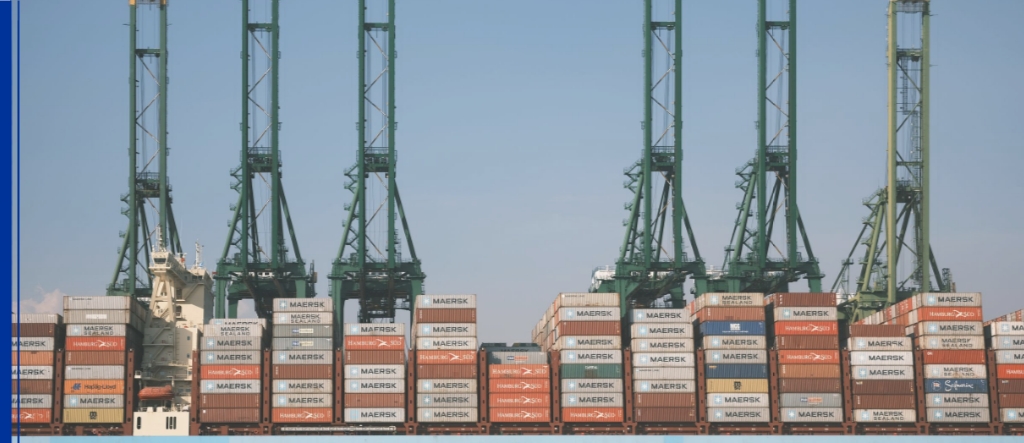The GSP and its effect on global supply chains pre- and post-COVID
An interview with Mr Niclas Frederic Poitiers, Research Fellow, Bruegel
The GSP Hub team sat down with Mr Niclas Frederic Poitiers of the Brussels-based economic think-tank Bruegel for a discussion on the economic implications of the GSP. Mr Poitiers, who is working on EU trade policy and e-commerce in trade, gave us valuable insight into the economic and social aspects of the GSP and the effect of the scheme on supply chains globally. Read our interview to learn more about the synergies between the GSP and global trade and how the scheme can further evolve in this regard.

GSP Hub: What is your assessment of the EU’s GSP? In your view, is it an efficient tool in promoting both economic and social development in beneficiary countries?
Niclas Frederic POITIERS: The GSP is one of the key tools in European trade strategy for promoting economic development, as well as humanitarian and social objectives in developing economies. Empirical studies on the effectiveness of the GSP concerning its economic objective have produced mixed if not disappointing results. Other agreements often provide better access to the European Single Market, undermining the usefulness of the GSP for many developing economies. However, the unilateral nature of the preferences granted under the GSP makes it a potentially stronger tool in pressing for reforms than available under reciprocal trade agreements.
GSP Hub: A common criticism of the GSP is that its economic impacts outweigh the human impacts, including human and labour rights, environmental protection, good governance, etc. What is your assessment of this statement? In your view, how does the GSP balance the economic and human dimensions?
POITIERS: Lacking a coherent foreign policy, trade policy is the main tool of the EU in foreign relations. Over the last years, non-trade policy objectives have become increasingly important in EU trade policy. This creates the risk of overburdening it with non-commercial objectives that trade policy is ill-suited to achieve. This is particularly relevant for the GSP, which is targeted at developing countries. The EU has to find a balance between fighting poverty through promoting economic growth and using access to its markets as leverage for non-economic objectives. The GSP, and in particular the GSP+, is a useful tool and can provide incentives to improve governance, which is key for reaching social and environmental goals as well as economic growth. However, to be effective such efforts have to be part of a larger strategy, in concert with development and foreign policy.
GSP Hub: What do you consider the greatest challenge in the implementation of the GSP? What measures could the EU take to promote this scheme towards stakeholders in beneficiary countries?
POITIERS: Administrative costs, in particular concerning rules of origin, are among the main impediments for the utilisation of GSP preferences by exporters in developing economies. Reducing these costs, as well as expanding GSP preferences to new products and sectors, will be key to increasing the uptake of the preferences granted under the GSP.
GSP Hub: How would you evaluate the impact of COVID-19 global supply chains, especially concerning GSP beneficiary countries? What can the EU do to reconstruct these chains and to support global trade in the framework of the GSP?
POITIERS: After the initial shock at the outbreak of the pandemic, global value chains have held up remarkably well and world trade declined in 2020 much less than anticipated. However, developing economies are among those that face the worst economic fallout from the pandemic. Decades of progress in the fight against poverty might be lost. More support for the GSP beneficiary countries is needed to help them return to economic growth, both in terms of financial assistance and access to vaccines.
GSP Hub: How do you see the future of international trade and supply chains in the post-COVID world? The current EU GSP regulation is set to expire in December 2023, what related measures do you foresee from 2024 onwards?
POITIERS: Despite the headwinds of the pandemic and the US-China trade war, value chains have proven resilient and I do not foresee significant nearshoring to developed economies. The bigger challenge for GSP beneficiaries’ countries in the post-COVID world might lie in technological change, as pre-mature deindustrialisation threatens the classical route of development through manufacturing exports. Going forward, the EU should seek to support new paths of development for its GSP programmes, for instance by exploring ways to harness the potential of digital trade in services for developing economies.
GSP Hub: To conclude, what would be your top 3 GSP-related recommendations that you would make to the European Commission?
POITIERS: My first recommendation to the European Commission is to incorporate its GSP policy in a coherent strategy together with trade enforcement tools, sanctions, and development aid. Improving the coordination between EU Member States’ development and foreign policy and efforts regarding governance under the GSP will be key to strengthening its effectiveness in achieving non-economic objectives. Secondly, the EU should work to reduce the administrative burden exporters from GSP economies face, in particular with regard to the rules of origin. Thirdly, the GSP has been ineffective in promoting export diversification, and in light of premature deindustrialisation new paths for development have to be sought. The EU should widen the scope of GSP preferences, include more sectors, and consider new pathways for trade. This concerns in particular agriculture and (digital) services.